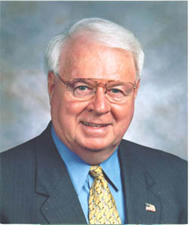From the Desk of Jack Healy
When Manufacturers Collaborate Good Things Happen
By Jack Healy, Director of Operations, MassMEP [email protected]
 |
Jack Healy –
A Voice for Manufacturing in Massachusetts |
The Manufacturing Advancement Center Workforce Innovation Collaborative (MACWIC) is an employer-led initiative consisting of large and small manufacturing enterprises from various industries who have joined with educational/technical providers and the MassMEP to collaboratively tackle urgent issues in workforce training. The MACWIC was recently recognized by the MIT Industrial Performance Center as being a unique collaboration:
"Existing manufacturing support programs mainly focus on the supply side in the sense that they target suppliers and workers, without, in many cases, a direct link to the demand by OEM’s. (MACWIC) is an exception to this. Few structures exist to systematically deepen OEM-SME collaborations." – Strengthening the Innovation Ecosystem for Advanced Manufacturing, MIT, May 2015
The MACWIC came together back in 2012 when the 40 founding member companies recognized that the lack of skilled workers was the biggest impediment to the growth of their companies. They began a quest to avoid becoming victims of helplessness; they wanted to do something to solve the problem. Currently, MACWIC has grown to 185 members, whose manufacturing members employ more than 10% of the state’s total manufacturing workforce of 250,000.
|
Massachusetts Secretary of Labor,
Ron Walker |
The MACWIC’s latest project involved creation of the Manufacturing Workforce Roadmap. Once created, they organized a meeting to present the Roadmap to the state’s Executive Officers of Labor, Education, and Housing and Economic Development — leaders of Governor Baker’s Workforce Skills Cabinet who have been tasked with addressing the serious issue of the state’s skills gap. The meeting was led by MACWIC Chairman Tom Wesley, Director of Facilities Management at Waters Corporation.
MACWIC Manufacturing Workforce Roadmap
STATE
-
Embed MACWIC competency-based, industry-recognized certifications and third-party validation of skills in training and education pathways, minimizing the hiring risk and cost to hire for employers. (Labor, Economic Development & Education)
-
Endorse statewide articulation agreement between MACWIC and Massachusetts Community College system, creating a seamless pathway from high school through community college and beyond. (Education)
-
Fill the approximately 500 open Machine Tool Technology seats across the Commonwealth by making them available to students who did not initially get into vocational high school. (Education)
-
Change "college" as the metric by which vocational high schools are measured and track industry certifications as a measure of completion at the secondary level. (Education)
-
Continue to subsidize "Learn and Earn" programs to mitigate the extraordinary cost of on-the-job training. (Labor)
-
Continue to fund Workforce Training Fund "Regional Training Capacity Pilot" program grants. (Labor)
JOINT STATE & MACWIC
-
Create standardized, best practice curriculum accessible by all vocational high school Machine Tool Technology programs, incorporating MACWIC competencies and curriculum. Encourage successful Machine Tool Technology programs to share their curriculum and expertise with the MACWIC for inclusion in standardized curriculum. (Labor, Economic Development & Education)
-
Support a statewide campaign to overcome manufacturing industry perception issues with Millennials and Gen Z. (Labor, Economic Development & Education)
MACWIC
-
Encourage manufacturers to ask for MACWIC credentials during the hiring process, making it a job requirement, or at least an expectation.
-
Provide industry-developed professional development for Machine Tool Technology instructors.
|
Massachusetts Secretary of Education, Jim Peyser |
These 10 goals represent a shared agenda that requires no funding but mutual agreement between the state and MACWIC to work toward realizing the assigned goals. This collaboration is very much in line to the "Communities that Work Partnership" which is a key program launched by U.S. Commerce Secretary Penny Pritzker, who said, "All workforce training is local. We know that it’s not something that can be driven nationally. And it needs to be driven by the demands of business."
This was a sentiment that was echoed at the MACWIC roundtable meeting by the state’s Secretary of Labor Ron Walker, who is working to connect the state’s workforce system with the demand side needs of the employers.
Both Mr. Peyser, Massachusetts Secretary of Education, and Secretary Walker said at the MACWIC rountable meeting that the needs of employers must influence the state’s initiatives.
"The collaboration approach is a good way to do that," Peyser said. "Through this group of employers, they (MACWIC) have created that set of credentials and certifications, as opposed to leaving it to the educators to figure it out for themselves. This idea of it being an employer-driven process, rather than one that is initiated in colleges or high schools, is a tremendous approach that we ought to be replicating in other sectors."
The MACWIC membership welcomes this attitude of the Skills Cabinet leadership to address this economic impediment to our state. Chairman Tom Wesley expressed the collective appreciation for the secretariats’ willingness to attend this meeting and listen to a "Manufacturers View of the Skills Gap." As Wesley pointed out, "This is really a sustainability issue for all manufacturers."
Worcester Telegram’s summary of the meeting proceedings, "Help wanted: Manufacturers look to schools, communities to help build workforce," May 27, 2023
To get involved in the MACWIC programs, find out more at http://www.macwic.org/sample-page/membership-2/become-a-macwic-member/
—–
Have an Opinion?
Have an opinion to share? Send a Letter to the Editor.
|
